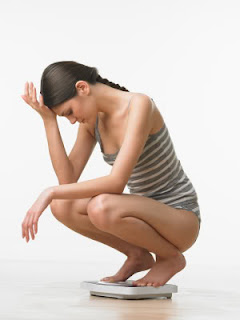Halloween is here. Thanksgiving is just around the corner. And then it's on to Christmas and Hanukkah and Kwanzaa. No matter what or how you celebrate, one thing is universally true: we have entered The Food Months. And I'm not talking about fresh, healthy, whole foods. I am talking about those familiar sweet, high fat, high carb, low fiber foods that beckon to us until we finally give in. Over and over and over again. Until January 1st, when we land on the couch in a pile of bloated exhaustion, vowing to "eat better, do better, be better" ... starting tomorrow.
But what is it about the availability of so many foods that tempts us, then promises to satisfy us, then fails to sustain us until they tempt us once again? Well, there are as many theories as there are foods, of course, but Chinese food therapy is one that actually makes sense to me.
One of the first signs of hot/cold imbalance often appears in the form of a craving. A sugar craving, for example, is not always about a lack of willpower. In fact, a sugar craving (or worse, a sugar addiction) can be - and most likely is - evidence of yang food overload ... and not enough yin. And why? Because sugar is a Yin food. But guess what? It isn't the only one. So while many of us run to cookies and candy to satisfy our perceived "sugar needs" only to find that we feel bloated, nauseus, and needing more sugar a mere ten minutes later, a serving of healthy Yin foods would likely satisfy our physiological needs without the compounding the sugar toxicity and further tipping the Yin/Yang imbalance.
The Yin/Yang diet is grounded in macrobiotic concepts, as shown in the chart below. Although we need 1/3 yang food to 2/3 yin food, the typical American diet is primarily Yang food-based: meat, potatoes, cheese, and wine, for example with minimal Yin foods. Not too hard to see where the imbalances are coming from or why we turn to the fastest acting Yin foods when the imbalance becomes unmanageable.
Not only a form of nourishment and weight management, food in Chinese culture is also medicinal. Understanding the Yin/Yang food concept is essential for treating "hot" conditions such as Eczema, where garlic, chilies and potatoes may best be avoided. In the same way, it is believed that an over consumption of too many hot foods like " foods like peanuts or smoked fish could cause a rash, whereas too many grapes or bean sprouts could cause digestive problems.
Does any of this ring true for you? Are you a heavy Yin food eater? Or do you consume a diet of mostly Yang foods? If you're considering a holistic approach to diet and healing, give the above list a try and see what happens. Whether your cravings or rashes disappear, whether your energy or sleep improves, and use how you feel as your measure of success.
Not only a form of nourishment and weight management, food in Chinese culture is also medicinal. Understanding the Yin/Yang food concept is essential for treating "hot" conditions such as Eczema, where garlic, chilies and potatoes may best be avoided. In the same way, it is believed that an over consumption of too many hot foods like " foods like peanuts or smoked fish could cause a rash, whereas too many grapes or bean sprouts could cause digestive problems.
Does any of this ring true for you? Are you a heavy Yin food eater? Or do you consume a diet of mostly Yang foods? If you're considering a holistic approach to diet and healing, give the above list a try and see what happens. Whether your cravings or rashes disappear, whether your energy or sleep improves, and use how you feel as your measure of success.
Just some food for thought. And balance.
Til next time,
~ Hasky







